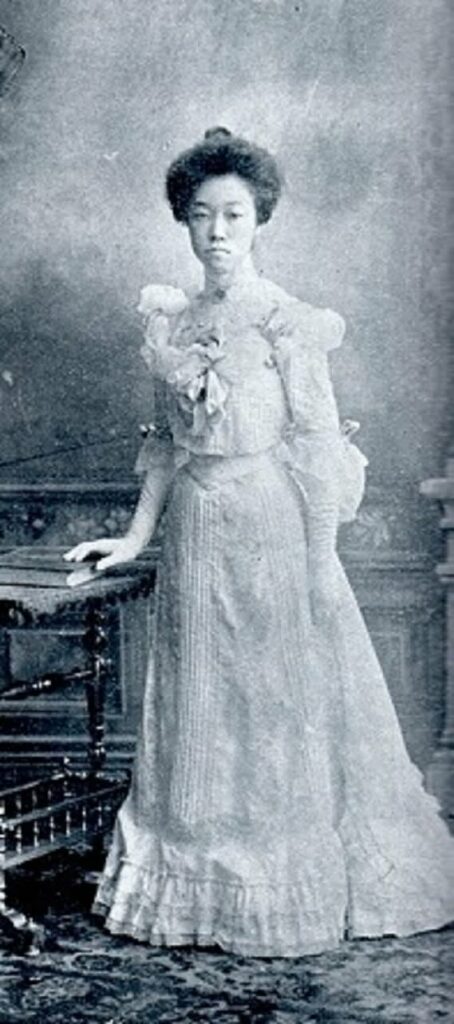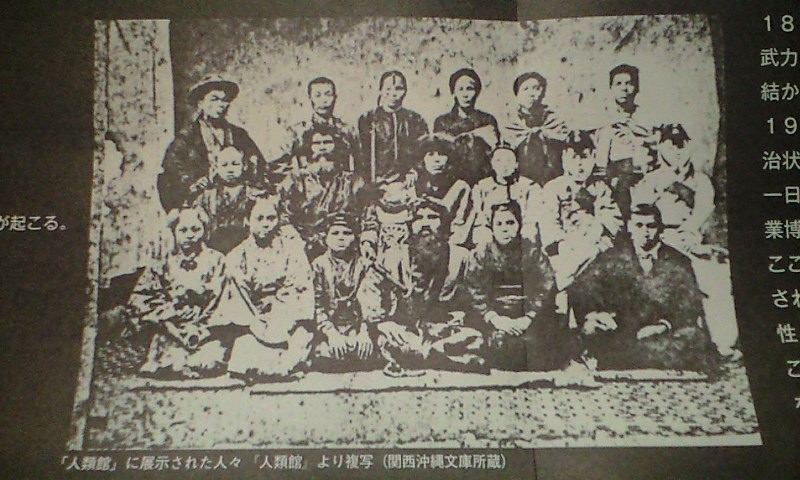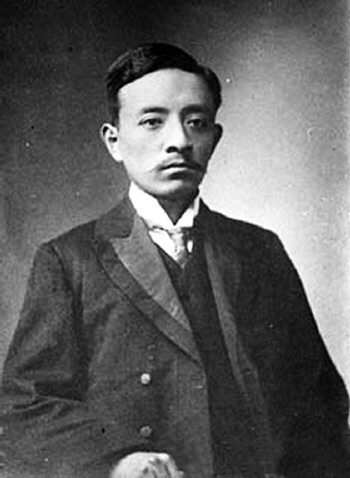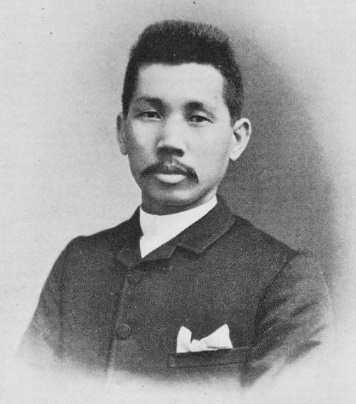
Social Relations
Emancipation of Women
Activities
Meetings in Tokyo with Japanese women who were manifesting public activity were important to Bronisław Piłsudski. He was very interested in the issue of emancipation.
Of crucial importance in this regard were his meetings with Hideko Fukuda.
Hideko Fukuda
She was one of the most important figures in the Japanese women’s liberation movement and the history of Japanese socialism. She came from a samurai family, and demonstrated independence from her early years; she received good education (also western) at home, and the figure of Joan of Arc was her childhood idol. She founded a school for children of working mothers and joined the civil rights movement. She soon became involved in subversion activities against the existing political system (including relations with China and Korea), and helped collect explosives and weapons to be shipped to the Korean revolutionaries. After her conspiracy was detected by the government, she was convicted but soon pardoned; she then became involved in educational activities for women, founding one of the first technical schools for women. Fukuda famously defended the residents of the village of Yanaka near Tokyo (now district of Tokyo, which is very attractive because of the traditional character of the buildings, abundance of small temples, and the old cemetery) from forced resettlement.
Fukuda was friends with the socialist activist Toshihiko Sakai who was also one of Bronisław Piłsudski’s acquaintances. She was a contributing author of the “Heimin Shinbun” newspaper. In 1907, she founded a socialist magazine for women “Sekai Fujin”, which thanks to Piłsudski and Futabatei printed the first translations of Polish literature in Japan (translated into Japanese from Russian translation).
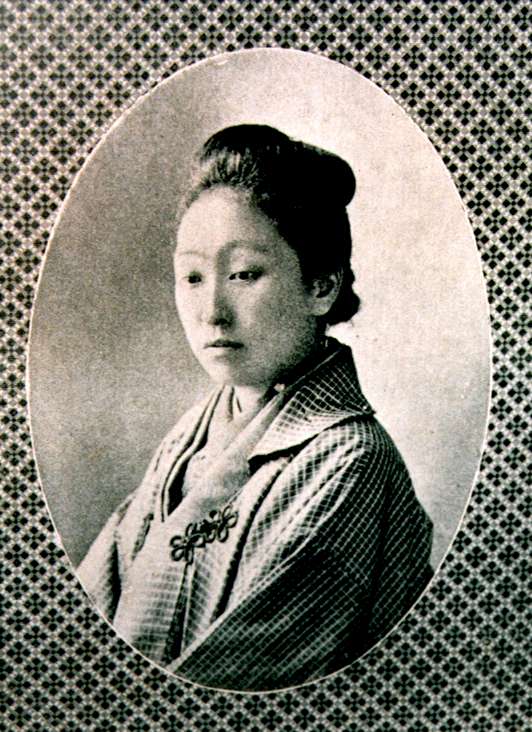
Japanese female artists: pianist Itoe Tachibana and soprano Tamaki Fujii
Shortly after arriving in Tokyo, Bronisław Piłsudski attended a charity concert organized for the benefit of the victims of another poor harvest that took place in the period of several years in northeastern Japan, Tōhoku that hit the region in the record cold year of 1905, as well as of the victims of famine. Many aid campaigns were then initiated, including one of a dozen concerts at the Tokyo Academy of Music, the oldest art academy in Tokyo, organized by university students coming from the region. The concert was held on 11 February and its repertoire consisted of traditional Japanese music and classical European pieces. Piłsudski described the event in the Russian magazine “Priroda i ludi Dal’niego Vostoka” (Issue 8, 9 March 1906). An interesting piece of information about this event is that the first part of the concert included the performance of works of genres such as tokiwazu, nagauta, and shamisen music. It was a form of narrative song that recounted the adventures of characters known from stories and dramas. Artists performed: Kishizawa Mojibei, Kishizawa Yaohachi, Yoshimura Ijūrō, and Kineya Rokuzaemon – all were considered outstanding artists of the traditional kabuki theater at that time.
This is what Kishizawa Mojibei’s singing and Kishizawa Yaohachi’s accompaniment might have sounded like at the concert (with a scene from a kabuki theater in Tokyo)…
The speaker was Shigenobu Ōkuma, then the leader of the Constitutional Government Party and the future prime minister of Japan, whom Piłsudski had the opportunity to meet.
Piłsudski, however, was particularly fond of two female artists. First, the famous pianist Itoe Tachibana played Chopin’s Ballade.
Then, Fujii Tamaki performed several songs: Es hat die Rose sich beklagt composed by Robert Franz, who was then immensely popular in Japan, to a poem by the Azerbaijani poet Mirza Shafi translated into German by F.M. Bodestedt, the aria Ein Friedhof composed by the same composer to a text by Max Waldau, and an aria by Bach (Jan Sebastian or his son Wilhelm Friedmann) titled Willst du Herz mir schenken.
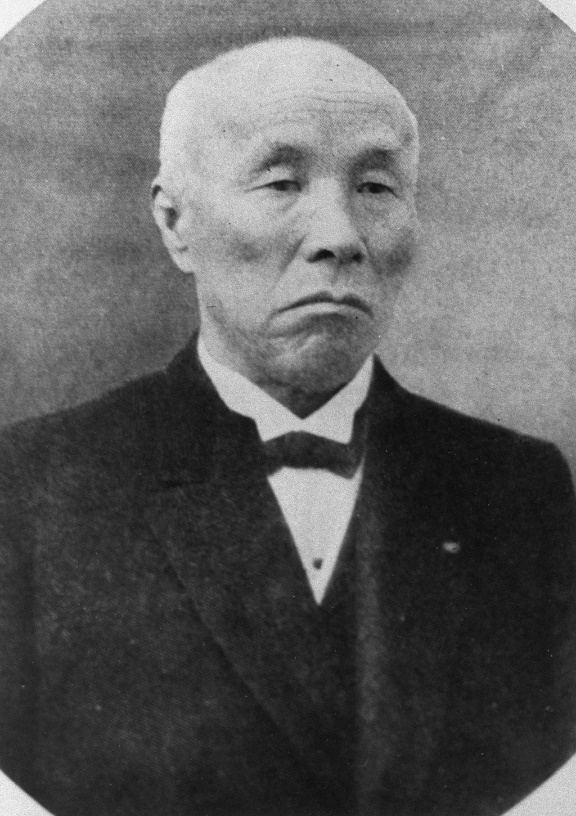
Piłsudski wrote about the concert as follows:
“Attending this concert made it clear to me that the Japanese can understand and convey [the essence of] European music, which is so different from their music. Miss Tachibana played Chopin’ Ballade with elegance and heart. Miss Fujii performed several romanzas by Bach, Franz, and Brech [presumably Piłsudski meant Max Bruch], showing the full power and charm of her soprano. If she decided to go to Europe, she would certainly gain popularity and wide recognition.”
Piłsudski had a passion for music; after all, we remember that in his youth he learned to play the piano, and in Sakhalin he himself tutored his schoolgirls in music and… dreamed of playing the violin.
His opinion of Fujii was very accurate – in the future the artist would make a career on European stages.
Tamaki Fujii
A recognized artist and educator in the vocal department of her home university, the Ueno Music School, Tamaki Fujii was an extremely popular, colorful figure (her maiden name was Shibata). She made her debut in the role of Euridice in C.W. Gluck’s Orpheus and Eurydice. In later years, performing under the name Tamaki Miura (her second husband’s name), she became famous for her role of Madam Butterfly in over 2,000 performances in her 20 years long career, including that in the London Opera House in 1915, and later in Berlin, Boston, and many other cities.
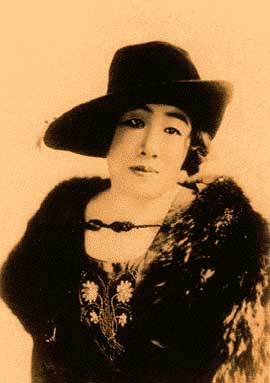
Itoe Tachibana
The pianist whose performance made a big impression on Piłsudski was at the time a renowned pianist and a teacher at the Academy of Music.
As an immensely sensitive person, she was also a poet who created in the traditional waka form and a member of the Hana no Kai (Flower Society) group; she was friends with writers, including her former music student and then a well-known novelist, Tōson Shimazaki. Several of Shimazaki’s works feature female artist characters modeled after Tachibana.
With a wide group of friends among writers and musicians, Tachibana remained single throughout her life.
The piece Bronisław Piłsudski heard at the concert on 11 February 1906 was probably the Ballade Op. 1 in G minor.
